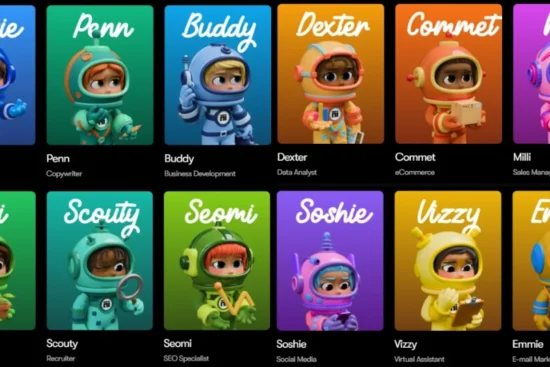
Artificial Intelligence (AI) has become an integral part of modern smartphones, revolutionizing how we interact with technology. As we enter 2024-2025, AI-driven smartphones are not just evolving—they’re transforming our lives. From enhanced user experiences to groundbreaking innovations in hardware and software, AI continues to redefine what we expect from our pocket-sized companions. This article explores the latest advancements, their implications, and how AI is shaping the future of smartphones.
AI as the Core of Smartphone Evolution
In the past, smartphones were tools for communication, entertainment, and productivity. Today, AI integration has turned them into intelligent assistants capable of anticipating our needs. Whether it’s processing massive amounts of data, improving app performance, or delivering unmatched camera quality, AI has become the heartbeat of smartphone technology.
1. Personalized User Experiences
One of AI’s most significant contributions to smartphones is its ability to personalize user experiences. AI algorithms analyze user habits, preferences, and interactions to tailor services, from suggesting apps to adjusting phone settings.
Smart Assistance and Predictive Suggestions
Modern smartphones leverage AI to provide real-time suggestions. For example:
- Battery Optimization: AI predicts app usage patterns to extend battery life by closing unused apps.
- Adaptive Interfaces: AI dynamically adjusts interface settings, such as enabling dark mode at night or reducing blue light exposure.
Voice Assistants Becoming Smarter
Voice assistants like Siri, Google Assistant, and Bixby are no longer basic query responders. They’re now deeply integrated into daily life, capable of managing complex tasks, such as booking appointments, sending reminders, or even controlling IoT devices.
2. AI in Photography: Redefining Smartphone Cameras
Gone are the days when megapixels were the sole measure of camera quality. AI now drives innovation in smartphone photography, enabling features that were unimaginable a few years ago.
Scene Recognition and Optimization
AI-powered cameras recognize scenes—landscapes, portraits, or low-light environments—and automatically adjust settings for the best shot. This makes professional-level photography accessible to casual users.
Real-Time Video Enhancements
Smartphones now use AI to stabilize shaky videos, enhance resolution, and even remove background noise in real-time. These advancements are especially useful for content creators and vloggers.
3. AI-Powered Security Features
With data breaches and privacy concerns on the rise, smartphone manufacturers are leveraging AI to enhance security.
Advanced Biometric Authentication
AI-driven facial recognition and fingerprint scanning are faster and more secure than ever. These systems learn and adapt, improving accuracy over time and reducing false positives.
Fraud Detection and Anti-Malware
AI continuously monitors smartphone activity to detect unusual patterns or potential threats. For instance, AI can flag phishing attempts or block malicious apps before they cause harm.
4. Generative AI: Creativity in the Palm of Your Hand
Generative AI applications are making waves in smartphones. From image editing to content creation, these tools empower users to unleash their creativity.
AI-Enhanced Creativity Tools
- Photo and Video Editing: AI automates editing tasks, such as color correction, object removal, and even generating new content based on user input.
- Text Generation: Apps now use AI to compose emails, summarize documents, or suggest engaging social media captions.
5. AI in Gaming and AR
Gaming and Augmented Reality (AR) have seen significant improvements thanks to AI.
Enhanced Performance
AI-driven smartphones allocate resources efficiently, delivering smoother gameplay with less battery drain. Features like real-time ray tracing bring console-level graphics to mobile devices.
Immersive AR Experiences
From educational apps to virtual try-on tools in e-commerce, AI has expanded AR’s capabilities. Using advanced computer vision, smartphones can now map environments and interact with objects in real-time.
6. AI and the Internet of Things (IoT)
AI-powered smartphones are central to the growing IoT ecosystem. They act as hubs, connecting and controlling smart devices seamlessly.
Smart Home Integration
Users can manage everything from lights to thermostats using voice commands or smartphone apps powered by AI. Predictive algorithms even adjust settings automatically based on habits.
7. AI Hardware Innovations
To support AI-driven features, smartphone manufacturers are designing specialized hardware.
AI Chips
Processors like Apple’s Neural Engine and Qualcomm’s AI Engine optimize performance by handling AI tasks efficiently, reducing power consumption and enhancing speed.
Energy Efficiency
With AI-powered optimization, smartphones consume less power, offering longer battery life without compromising on performance.
8. Ethical Concerns and Data Privacy
While AI has unlocked incredible potential, it also raises ethical questions.
Transparency and Bias
AI algorithms can inadvertently perpetuate biases or make decisions without transparency. Smartphone companies must ensure ethical AI usage by prioritizing inclusivity and fairness.
Data Security
AI relies on massive data sets to function effectively, which raises concerns about data privacy. Companies are adopting stricter encryption protocols and giving users more control over their data.
9. The Role of 5G and Beyond
AI thrives on connectivity, and the expansion of 5G networks has accelerated its adoption in smartphones. With low latency and faster speeds, AI applications can process data in real-time.
Edge Computing
To reduce dependency on cloud services, edge computing enables AI processing directly on the device. This minimizes latency and enhances privacy.
10. The Future of AI-Driven Smartphones
Looking ahead, AI is expected to make smartphones even more indispensable:
- Healthcare Applications: Smartphones could monitor vital signs, detect illnesses, and offer personalized health recommendations.
- Emotion AI: Future devices might gauge user emotions through voice, text, or facial expressions, tailoring responses accordingly.
- Fully Autonomous Systems: AI might one day allow smartphones to operate independently, from diagnosing their own issues to resolving them.
Conclusion
The evolution of AI-driven smartphones in 2024-2025 demonstrates their growing role as personal assistants, creative tools, and smart hubs. As AI technology continues to advance, smartphones are poised to become even more intuitive, powerful, and indispensable. However, balancing innovation with ethical considerations and data privacy will be crucial in shaping this future.
From revolutionizing photography to enhancing productivity and security, AI in smartphones is not just a feature—it’s the foundation of a smarter, more connected world. As these devices continue to evolve, the only limit seems to be our imagination.












